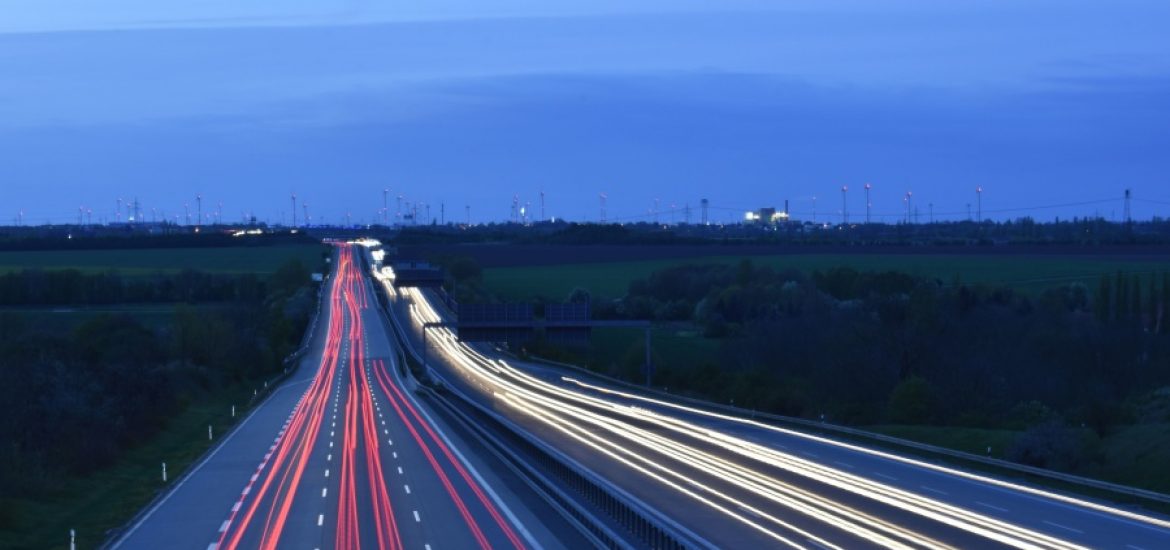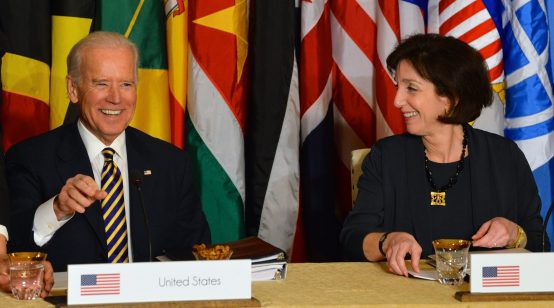
Volatile domestic politics defined the world in 2017, an unpredictability that has left its mark on the European energy climate. As a net consumer and importer of energy, Europe’s energy security is more vulnerable to global developments and shocks than other major actors. In some ways, we can discern that Europe has taken more resolute steps towards renewables, ostensibly reducing exposure to Russian gas and the global oil market, but hydrocarbons will not be easily dethroned or phased out by the continent’s consumers. Rather than signaling a clearer direction for Europe, five stories have produced a picture that its energy future is likely to be contested along familiar fault lines.
Trump triggers tougher sanctions on Russia
The most consequential way in which U.S. politics has affected energy in 2017 was not the election of Donald Trump to the U.S. presidency or the questions over the Trump campaign’s ties to Russia or whether Trump himself is beholden to Vladimir Putin. It was the quiet and nearly unanimous decision by the U.S. Congress in July to punish Russia for its campaign meddling and policies in Ukraine, Syria, and elsewhere, by passing a sweeping new round of sanctions.
The initial round of sanctions has not stymied Russian production in the short term, which has benefitted since 2014 from low production costs due to the sliding ruble. Moreover, U.S. sanctions are only likely to affect Russia’s long-term prospects by cutting off its access to U.S. technology or financial markets. The new round of sanctions seems to cut the legs out from under those (such as U.S. Secretary of State and former Exxon-Mobil CEO Rex Tillerson) who envisioned a cozy alliance on energy interests between Washington and Moscow that would enable U.S. companies to partake in the bonanza of unconventional hydrocarbons waiting in central and eastern Russia. For example, BP and Statoil have cooperated with Russia on projects since 2014. The result of these sanctions is more murkiness and uncertainty about Europe’s oil and gas-supply security.
The empire strikes back: Russia joins hands with OPEC
The most historic energy development in energy politics, however, was Russia’s agreement to coordinate a supply cut with OPEC countries. Having reached a verbal agreement in November 2016, we entered the year uncertain how well it would be executed. Past verbal agreements were reneged on by Moscow, most notably in 2001, and most wondered if the Russians would just dub a “cut” the natural decline in production from existing fields. Yet 2017 proved the sincerity of Russian intentions, which not only bolstered the oil market, but hinted at geopolitical realignments. This round of OPEC cooperation has also been remarkable for the level at which members complied with production quotas. In past instances, the tendency to cheat and surpass their quotas proved to great for smaller producers, but during this cycle, the compliance rate has been 86 percent according to the IEA.
The November 2017 agreement to extend cooperation possibly to the end of 2018 is the prime reason oil prices have moved higher. .Smaller OPEC countries such as Iraq and Venezuela do not want the cuts to become permanent and are eager for quotas to be lifted, which is likely to happen in 2018, or at least reneging and cheating will occur. Nonetheless, non-U.S. oil producers have seized greater control of the global oil market through this cooperation.
Brexit breaks EU energy unity
Amidst the global contest over oil, London’s seemingly inexorable march to pull out of the European Union has made Europe less energy secure. Despite declining North Sea production, British financial power and its role as a oil and gas transit country as well as its economic strength have brought uncertainty to the future of Europe’s policies and weakened the EU’s bargaining power as a unified block of consumers.
The full consequences of Brexit for Europe’s energy calculations are still difficult to discern and will depend on whether it is a “soft” or “hard” exit and if it London decides to leave the EU’s Internal Energy Market. Regardless, British oil and gas will now be counted as imports. On the whole, the move hurts Britain’s energy security more than any EU country, and the move will necessitate a wholesale revision of British energy policy.
Macron hastens European momentum on renewables
The election of Emmanuel Macron to the French Presidency stalled the wave of populism shaping Western countries and gave France a chance to revamp its energy policies. After Germany, France is the most influential shaper of the direction of European energy and, under Macron and Minister of Energy and Environment and former environmental activist Nicolas Hulot, appears willing to discuss taking the hard steps towards joining Germany as a veritable leader in renewables. Paris has banned all new oil and gas exploration as part of its “ecological transition,” and has set aggressive targets for renewable energy, calling for 70 percent of French energy to come from renewables by 2023. At the same time, Macron is sticking to his target for France to reduce its use of nuclear power from 75% to 50% of its total energy use by 2020.
It will be interesting to watch how well these ambitions are executed, but they are situated within another record year in growth of renewable energies in Europe. In 2016, wind passed coal as the second-largest source of power generation after gas, and renewables accounted for 90 percent of new generation growth. Macron is helping put France further within this green wave passing through the continent.
Chinese consistency
The largest influencer on the global energy system is now China, as it is the world’s largest energy consumer, and domestic Chinese politics move global energy markets. In October, Chinese President Xi Jinping achieved a status only matched previously by the father of the Communist movement in China, Mao Zedong, as Xi’s political thought was added to the country’s constitution. Without claiming to understand Chinese politics, we can nevertheless conclude that this is a vote for more of the same going forward and an affirmative of Jinping’s energy policies. Analysts largely agree that Chinese coal use peaked by 2014, as the country has taken active measures to improve the air quality in its cities. In light of Europe’s commitment to renewables, Chinese and European leadership in clean energy technologies, and Chinese financial power, these two blocks – the largest consumers globally – have already changed energy markets and promise to continue to do so going forward.





